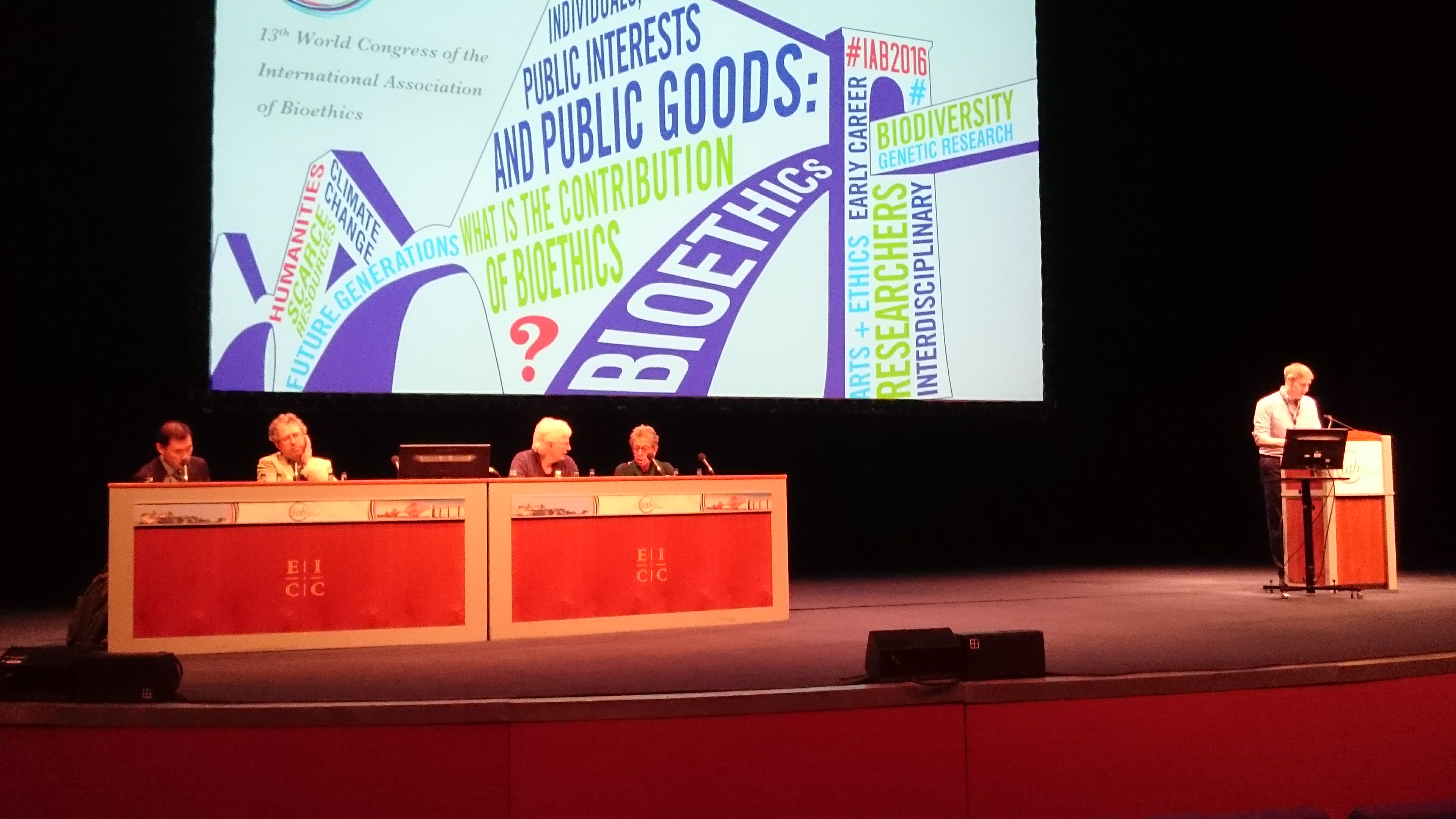Blog post
Are we making progress in bioethics?
‘Has bioethics contributed to scientific progress?’ and ‘Has bioethics itself progressed?’ These were the two very challenging questions posed by the Nuffield Council on Bioethics at its symposium at the World Congress of the International Association of Bioethics, in Edinburgh in June 2016. The daunting task of addressing these questions (surely not answering them) was given to a panel of four academics working in bioethics: Professor Ruth Macklin, Albert Einstein College of Medicine, New York, USA; Professor Christian Munthe, University of Gothenburg, Sweden; Dr Calvin Ho, National University of Singapore and me, Professor Erica Haimes, Director of the Policy, Ethics and Life Sciences (PEALS) Research Centre, Newcastle University. The symposium was chaired by Jonathan Montgomery, Professor of Health Care Law and Chair of the Nuffield Council.

The wider relevance of these questions is indicated by recent debates, not least the admonition for ‘bioethics to get out of the way’, from Professor Stephen Pinker, the American-based cognitive scientist, who argued in 2015 that bioethics was impeding scientific progress. The well known bioethicist, Professor Julian Savulescu, has also written recently that ‘bioethics has failed’ (Journal of Medical Ethics, 2015).
The panellists all acknowledged the need to consider, more carefully than the 5 minutes per question allowed, what constitutes ‘bioethics’, what constitutes ‘progress’ and what constitutes ‘science’. Nonetheless they each valiantly tried to provide a perspective from their own fields of inquiry and also their own careers as a way of capturing the historical framing implied by the questions.
In addressing the first question, Ruth Macklin, who has worked in American bioethics since the early 1970s, provided a decade-by-decade overview charting the decline of paternalism and the growing prominence of patient autonomy, including the right to refuse treatment. She highlighted the broadening of concern and work over this time period, going beyond conventional medical ethics to encompass the growing awareness of the need for rigorous research ethics, to the current expansion of interest in global health research, a theme echoed by both Christian and Calvin.
As the second speaker I gave an historical perspective from the UK since the late 1970s, starting with the birth of ‘the world’s first test tube baby’, Louise Brown, in 1978, through to current discussions on the 14-day limit on embryo experimentation, an issue which the Council recently announced it will be looking into. This time period also arguably saw the birth of UK bioethics influenced by the work of the Warnock Committee on human fertilisation and embryology and subsequent developments, building on and adding to the longstanding contributions from moral philosophy. I tracked some of the ways in which UK bioethics has made a clear and strong contribution to the development and governance of the life sciences and also mentioned some examples of where bioethics could perhaps have improved its analysis of such developments. I suggested that bioethics needs to maintain a role of being a critical friend rather than being an ethical fig leaf; the former sometimes necessarily entails ‘getting in the way’.
Christian Munthe and Calvin Ho both reflected on the growing role of bioethicists in the processes of governance and in the development of science policy, as well as shaping the more deliberative sphere of activism and public engagement. For Christian, bioethicists are now developing a sharper sense of politics though this can mean that they are torn in two directions: that of the intellectual task of conducting rigorous open inquiries into challenging issues, and that of activism, fighting to change law and policy in accordance with their commitment to preferred lines of action.
It was clear from these initial thoughts on the first set question and from the searching questions raised by the audience that the two initial questions were necessarily blurring into each other as the very nature of bioethics, and its progress or otherwise, came under scrutiny. There was a broad consensus that bioethics could usefully be regarded as a field of inquiry rather than a single strand discipline in its own right and that that field benefitted from multidisciplinary contributions from philosophy, sociology and the social sciences more generally (including science and technology studies), law and theology. As Calvin argued, bioethics is a space where different ideas intersect. For the panel as whole, the task of bioethics is to continue to make practical contributions to the improvement of global health and wellbeing and that it can only do that by taking an interdisciplinary approach that enhances both the questions asked and the rightful scrutiny of the role of medicine and the life sciences in society.
Erica Haimes
PEALS Research Centre, Newcastle University
Comments (0)
Join the conversation